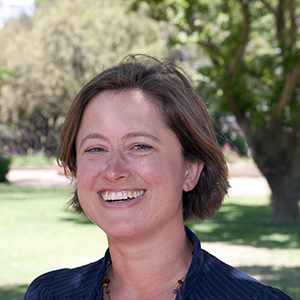Latest News Archive
Please select Category, Year, and then Month to display items
14 June 2024
|
Story Anthony Mthembu
|
Photo Suplied
 Jeremiah Hlahla, a UFS student completing his PhD in Botany at the University of Debrecen as part of an exchange initiative funded by the Erasmus+ Mobility Programme.
Jeremiah Hlahla, a UFS student completing his PhD in Botany at the University of Debrecen as part of an exchange initiative funded by the Erasmus+ Mobility Programme.
As part of an exchange initiative facilitated by the Erasmus+ Mobility Programme, Jeremiah Hlahla, a student at the University of the Free State (UFS), is nearing the completion of his PhD studies at the University of Debrecen in Hungary. Hlahla’s journey, which began in February 2024 and is set to conclude in July 2024, has been a remarkable learning opportunity. “As a first time-traveller to Europe, I have thoroughly enjoyed engaging with people from different countries and cultures,” he said.
The benefits of international collaboration
Hlahla is currently pursuing a PhD in Botany, focusing on plant stress physiology. “My current PhD project investigates the physiological, biochemical and morphological responses of vegetable-type soybean, or edamame, to combined drought and heat stress,’’ he explained. He considers the University of Debrecen the ideal institution to complete his research due to its extensive expertise and resources in similar projects. He noted that his colleagues at Debrecen conduct significant work on plant protection against biotic and abiotic stresses, including salt and drought stress, as well as proteins and amino acids in barley and other legumes.
Given the vast knowledge available on similar projects, Hlahla has found substantial engagement with his work at the University of Debrecen. “Upon arrival, I delivered an introductory lecture presenting my UFS project on the synergistic effects of combined drought and heat stress on the physiology and biochemistry of edamame. It was an engaging session as everyone could relate to my work and asked many questions,’’ he said.
Insights gained from the exchange
Hlahla has also gained valuable lessons that will assist him in his research career, including biotechnology and physiology tools. “I learned how to prepare samples and use high-performance liquid chromatography (HPLC) and reversed-phase ultra-high-performance liquid chromatography (UHPLC) to quantify proteins and amino acids,’’ he said. These techniques are beneficial not only for his current work but will also support future soybean research.
As his experience at the University of Debrecen nears its end, Hlahla reflects on the collaborations and friendships he has formed, which stand out as a significant highlight.
Dr Le Roux a fellow of Africa Science Leadership Programme
2016-02-23

Dr Aliza le Roux
Photo: Hannes Pieterse
|
National Research Foundation-rated Y2 scientist, Dr Aliza le Roux, has recently been added to the Africa Science Leadership Programme, an initiative that seeks to create an African network of scientific leaders across disciplinary borders. Her selection to this programme is a reflection of her powerful vision for the continent’s scientific future and sustained scientific excellence.
“It is an honour and an opportunity for me to grow as an academic. This opportunity will also help me build my leadership skills as well as my networks on the continent. It will create a culture of leadership and research that is led by African researchers,’’ Dr Le Roux said.
She added that African researchers have a great potential to solve global problems, yet many of them leave their countries to seek academic success elsewhere. “I hope that the lessons we learn in this programme will pave the way for academia and science to be taken more seriously and practiced more effectively on the continent.”
Together with 21 other fellows from across the continent, Dr Le Roux will be taking part in a week-long workshop in April this year. She is a Senior Lecturer and Subject Head in the Department of Zoology and Entomology on the Qwaqwa Campus of the University of the Free State.